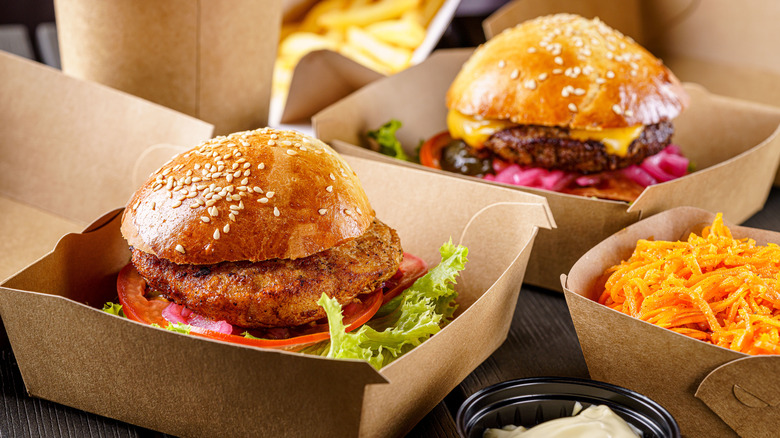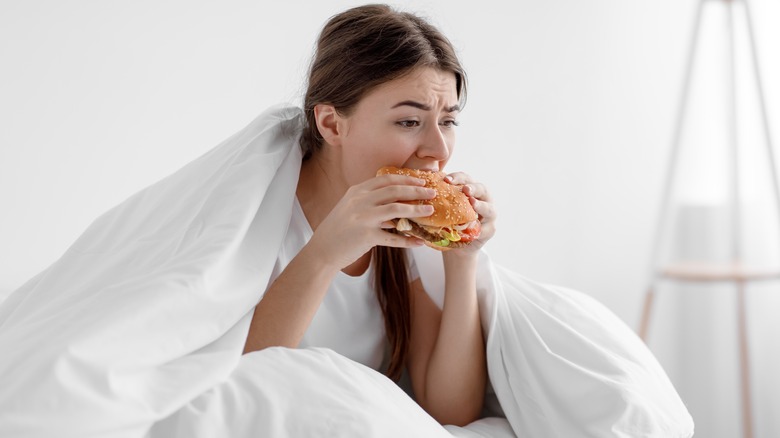The Real Reason You Should Avoid Value Meals At Restaurants
Whether you're stuck in traffic or just pressed for time, heading to the nearest drive-thru is often a quick, easy, and inexpensive dinner solution that satisfies the whole family. Value meals offered by most fast-food restaurants can help you save even more money. Although value meals may not cost much, the health risks they're associated with are a far higher price to pay.
A 2015 review published in Health Promotion Perspectives indicated that frequenting fast food joints can lead to an increased risk of excess weight gain around the waist, inflammation, oxidative stress, diabetes, high blood pressure, high blood sugar, and heart disease among other issues. According to the Cleveland Clinic, fast food meals consisting of pizza, burgers and fries, cold cuts, hot dogs, and fried chicken are the 5 most unhealthy fast-food options you can buy. These meals typically range between 300-1,500 calories and are packed with high amounts of sodium that are anywhere between 1,200-2,000mg.
Fast food value meals can negatively impact your mood
Dr. David Katz, director of Yale University's Prevention Research Center, told The Healthy that the more fast food people eat, the more likely they are to suffer from depression. Ironically, he also said the more depressed people feel, the more likely they are to eat fast food. "We use the words 'comfort food' for a reason," he told the publication. According to ScienceDaily, a 2012 study published in the Public Health Nutrition Journal backed up this idea with research that concluded people who eat fast food are 51% more likely to experience depression. MedicalNewsToday says stress and emotional eating are also reasons why people crave comfort foods like fast food. WebMD states that long-term or chronic stress can lead to depression and impact your appetite.
If it seems like you're eating fast food because you're depressed and you're depressed because you're eating fast food, meal planning is one way to get off the hamster wheel. A 2014 study published in the American Journal of Preventive Medicine found that young adults who meal prepped were less likely to eat fast food. Prioritizing mood-boosting foods and snacks (like bananas) can also help.
Value meals can drain your energy
Dietician Anne Danahy told Livestrong that traditional fast food items like burgers, fried chicken, and fries are full of sodium, fat, and sugar, as those ingredients make the food taste better. According to Healthline, because these meals are loaded with carbohydrates and fat, they can cause a spike in blood sugar, followed by an intense crash. When foods are broken down by the digestive system, those carbs are quickly converted into sugar, which then is released into the bloodstream. Fats and protein, on the other hand, take much longer to break down. The result: spike and crash. Your body feels this effect by experiencing fatigue, which may explain why you need a nap after grabbing that value meal for lunch.
Meal planning, counting your carbs, and practicing portion control are all recommended by Healthline as ways to prevent blood sugar spikes. Moving your body more through exercise and physical activity can also help ensure insulin performs as it should.



